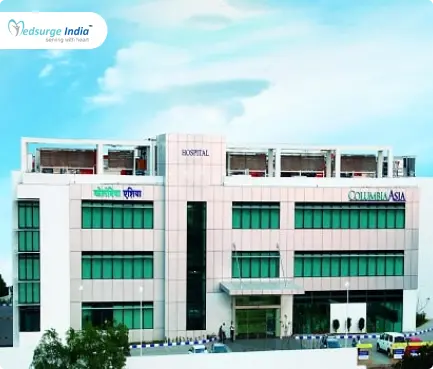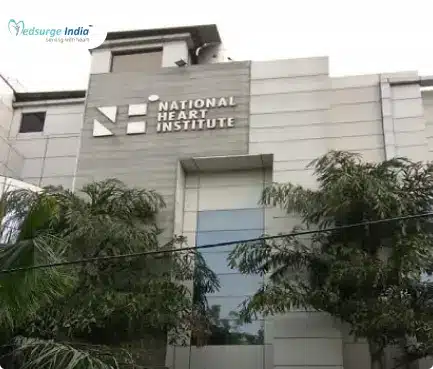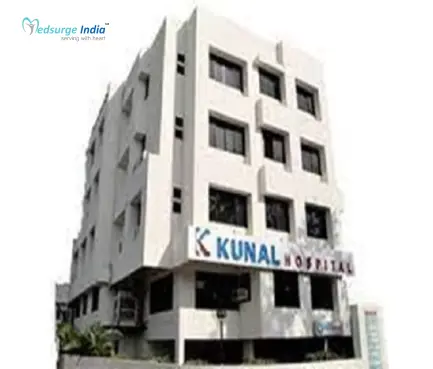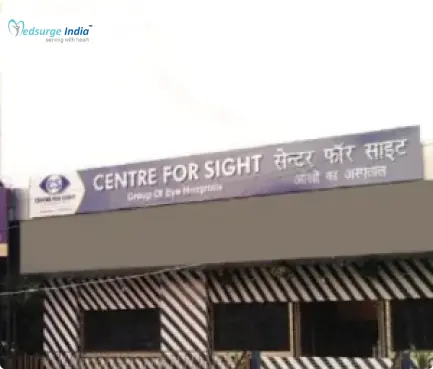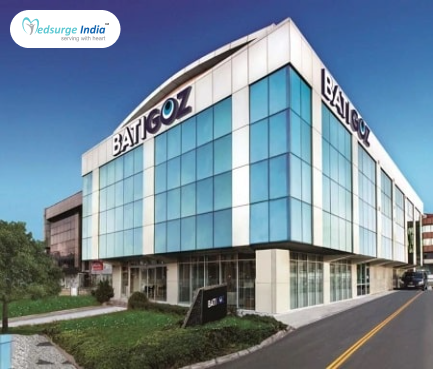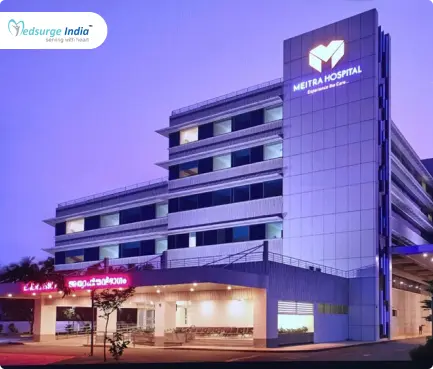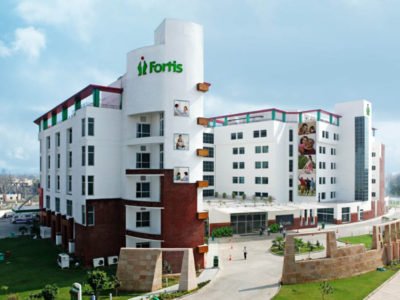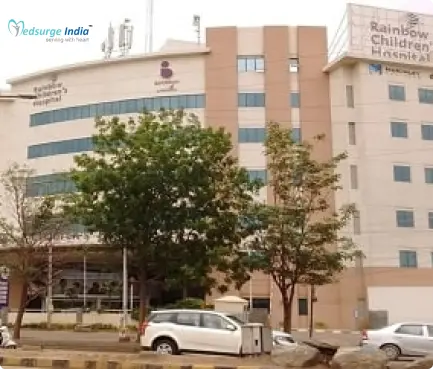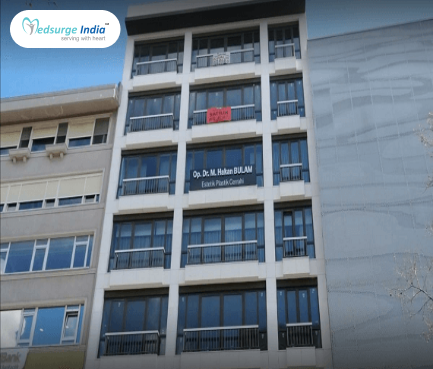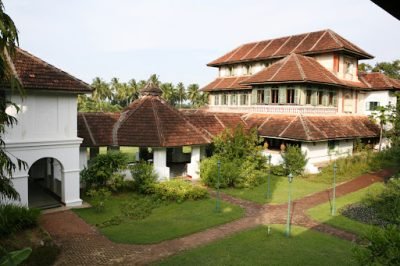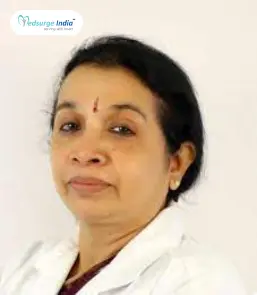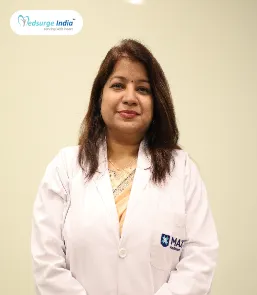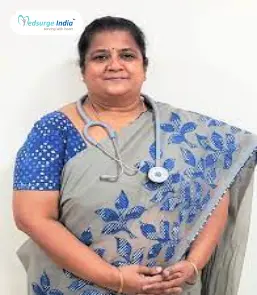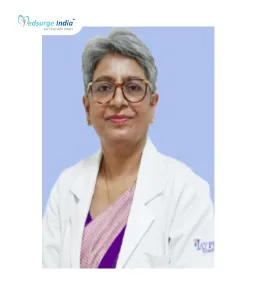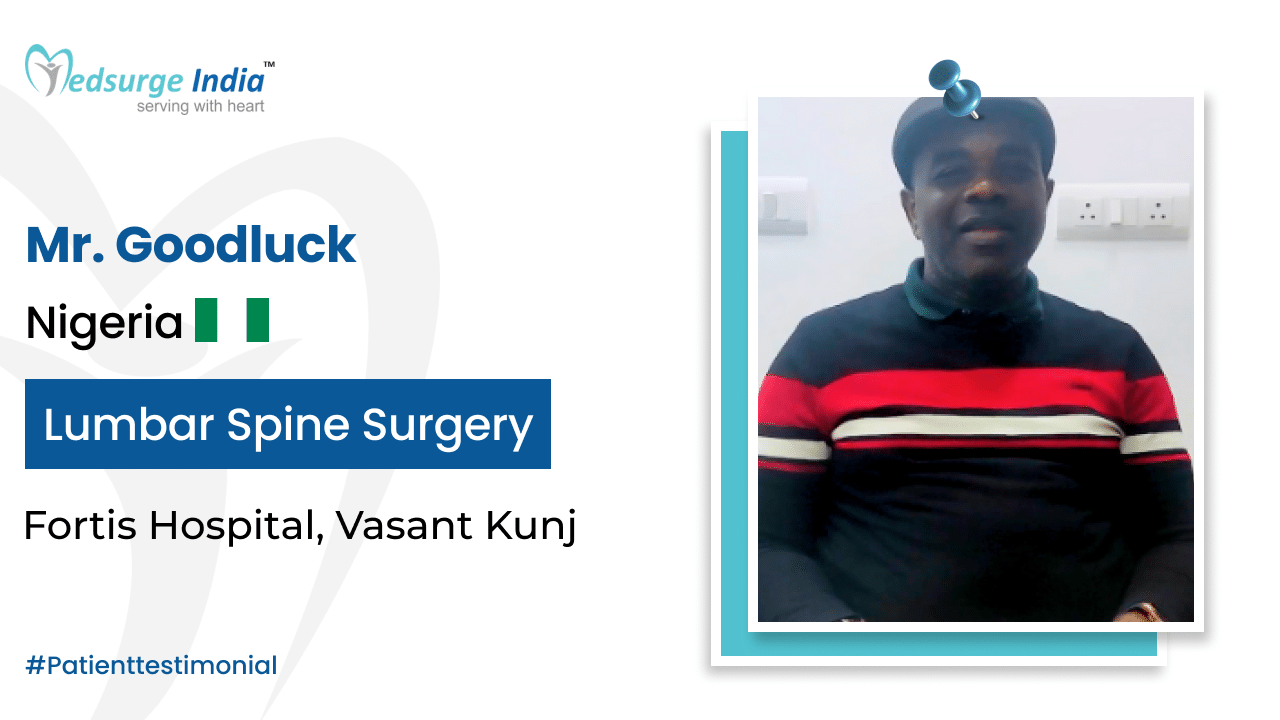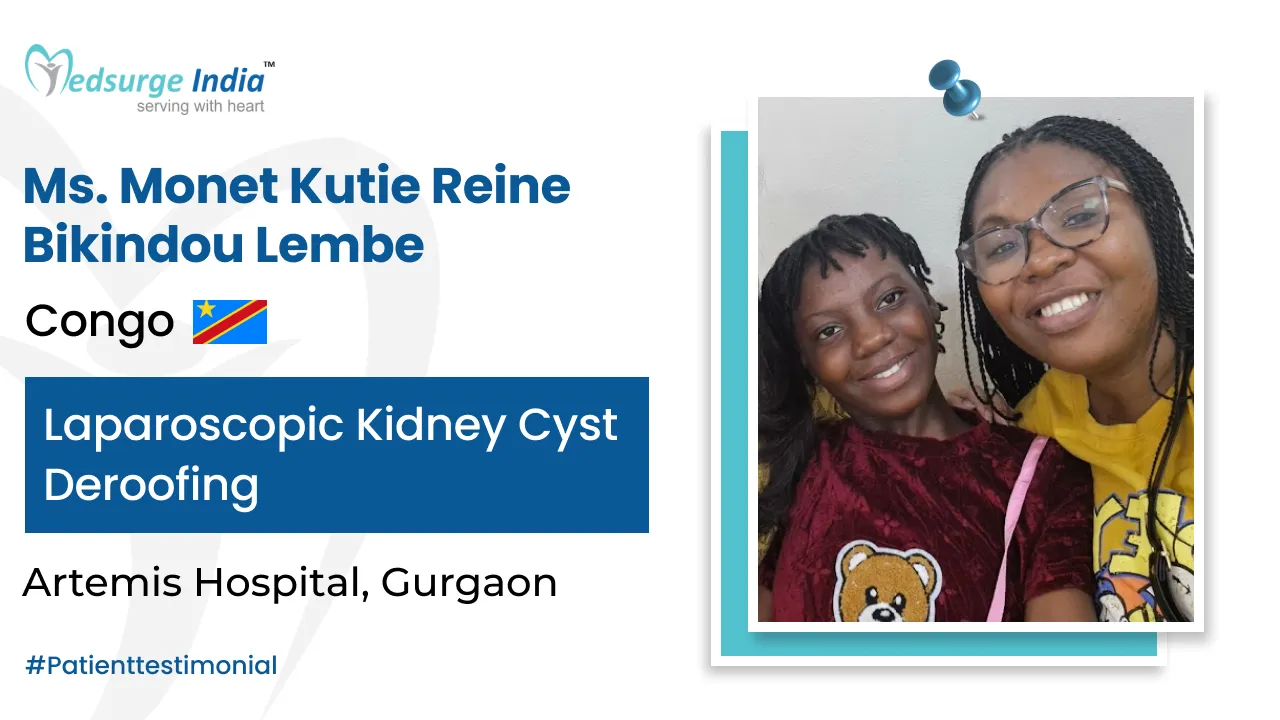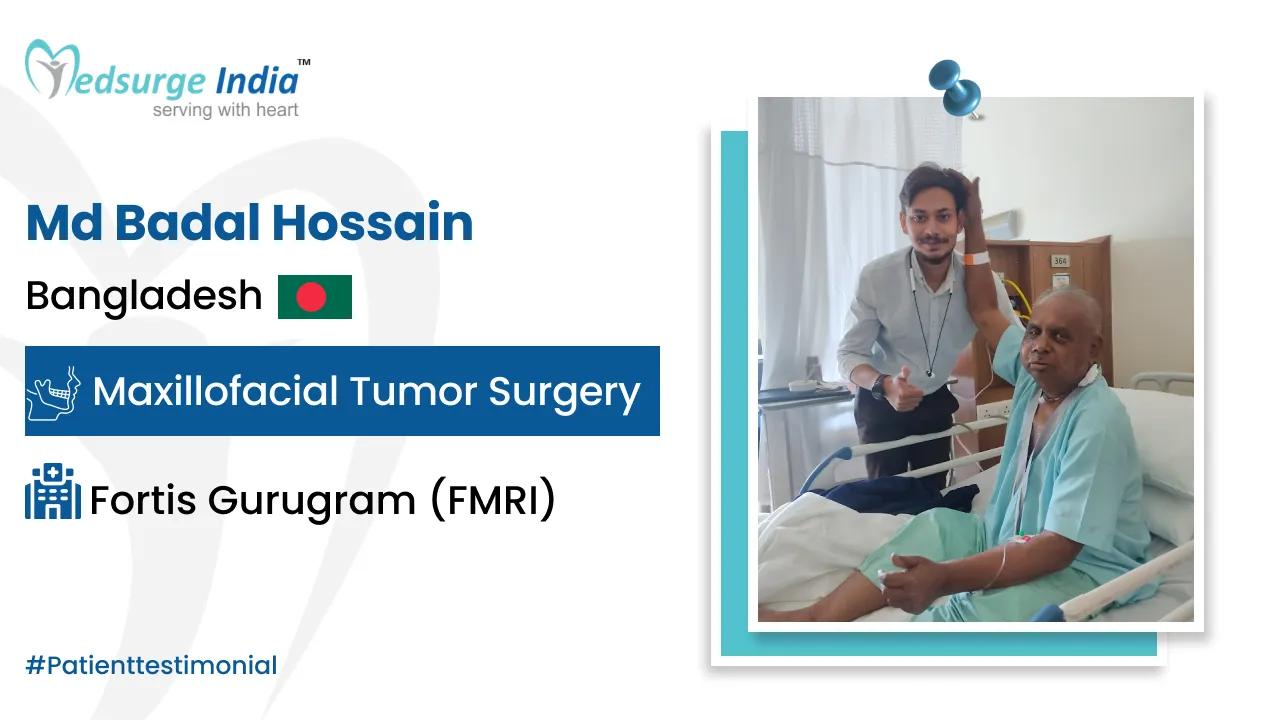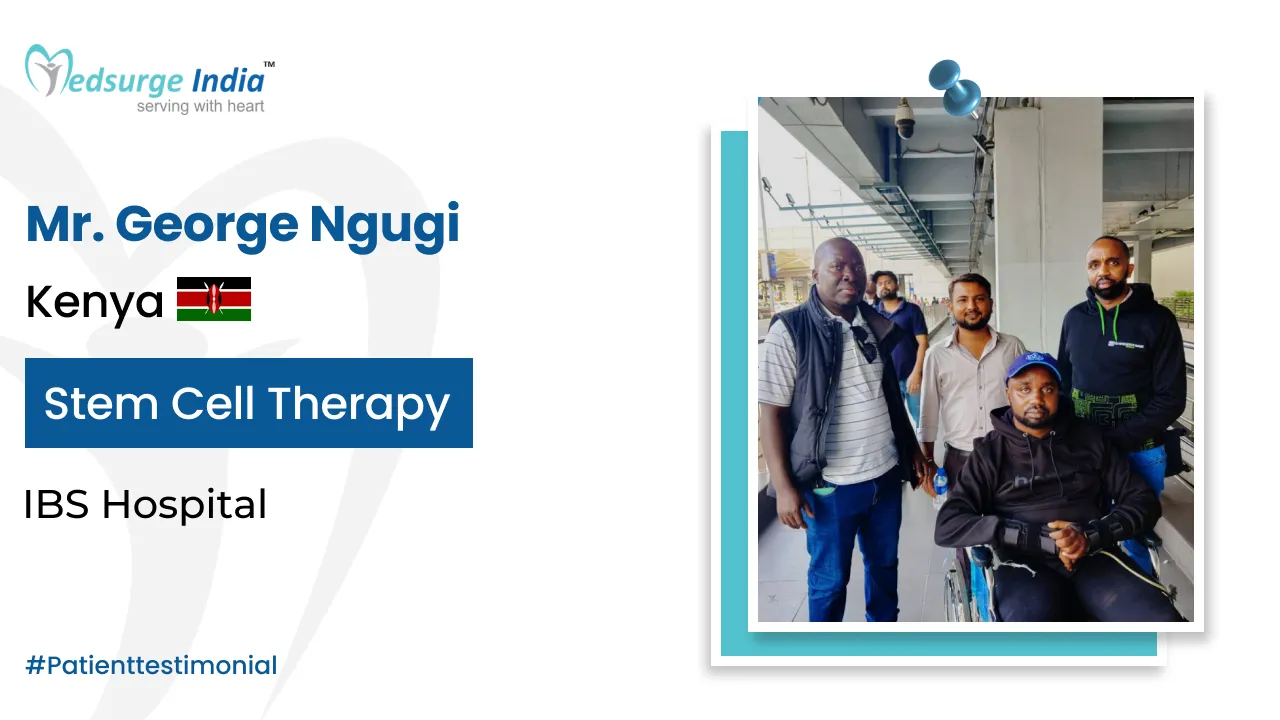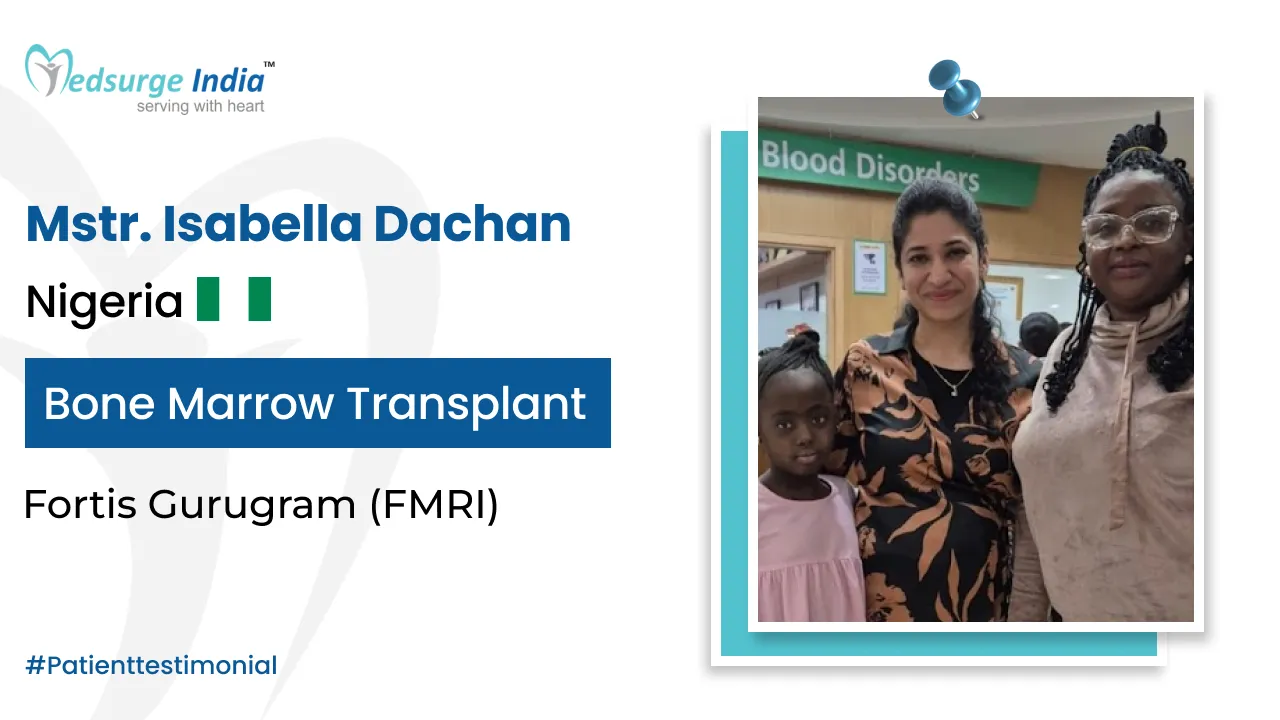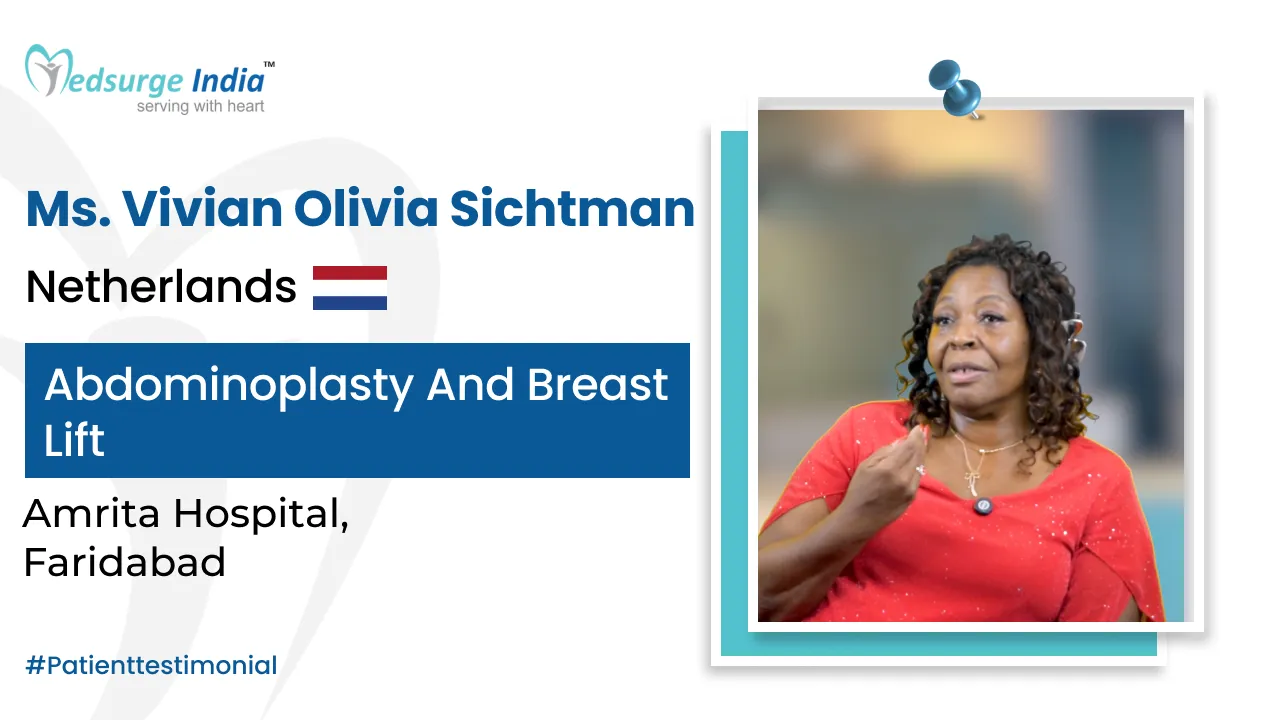
Female infertility can be caused by blocked fallopian tubes. There are no symptoms in most cases, however, there are some risk factors that can raise the chances of having the disorder. Tubal occlusion is the medical name for a blocked fallopian tube.
The blocked fallopian tube treatment in India is possibly done surgically. This, however, is dependent on the amount of the scarring and the location of the blockage.
Blocked fallopian tube treatment cost in India is minimal as compared to other developed countries. The patient must spend three days in the hospital and seven days out of the hospital. The entire cost of treatment is determined by the patient’s diagnosis and the facilities chosen.
What Is Fallopian Tubes?
Fallopian tubes are female reproductive organs that connect the ovaries and the uterus. The fallopian tubes are muscular tubes with delicate hair-like features that border them. These “hairs” act in both directions, assisting an egg in moving from the ovaries to the uterus and assisting sperm to travel up from the uterus. Each fallopian tube is ended by fimbriae, which are finger-like projections. When an egg is released by the ovary, the fimbriae catch and guide it.
Every month during ovulation, which occurs roughly in the middle of a menstrual cycle, the fallopian tubes carry an egg from an ovary to the uterus. Conception also happens in the fallopian tube. Sperm goes from the vagina to the uterus, then to the fallopian tubes, where it combines with and may fertilize the egg. In order for pregnancy to occur, the developing embryo must move from the fallopian tubes to the uterus once the egg has been fertilized. Fallopian tubes that are damaged or blocked can prevent a woman from becoming pregnant by interfering with the transit of the sperm to the egg or the fertilized egg to the uterus. Blocked fallopian tubes include scar tissue, infection, and pelvic adhesions.
Blocked Fallopian Tube Treatment Cost in India
Blocked Fallopian Tube Treatment Cost in India starts from 1500 USD. It typically includes necessary preoperative tests, the patient’s condition, and the surgery itself. However, please note that accommodation and transfers are not included in this cost.
Cost of Blocked Fallopian Tube Treatment in Different Cities in India
| Cities | Starting Price |
| Delhi | USD 1500 |
| Gurgaon | USD 1600 |
| Noida | USD 1500 |
| Mumbai | USD 1700 |
| Hyderabad | USD 1600 |
| Chennai | USD 1500 |
| Kolkata | USD 1500 |
| Bangalore | USD 1800 |
Note: Keep in mind that the above-mentioned cost provided is solely for the treatment. The overall cost of Blocked Fallopian Tube Treatment in India will be determined based on several factors.
Factors That Can Affect Blocked Fallopian Tube Treatment Cost in India
Various factors can affect the cost of Blocked Fallopian Tube Treatment in India. Your budget is greatly impacted by numerous elements that fail under pre and post-treatment costs. Below are the various factors that can affect the cost of Blocked Fallopian Tube Treatment in India.
- Medication costs: Certain medicines can influence the overall cost of surgery.
- Patient Condition: The complexity of the disease along with the patient’s overall health can affect the duration of treatment, impacting the cost.
- Duration of treatment: Longer treatment courses involving multiple visits can lead to higher cumulative costs.
- Geographical location: Cost can vary widely depending on the region in India.
- Hospitalization expenses: The length of hospital stay and the level of nursing care required by the patient can add to the treatment expenses.
- Government policies and subsidies: Government healthcare schemes and subsidies can reduce out-of-pocket expenses for patients, affecting the affordability of treatment.
- Medical tourism packages: Curated packages for international patients can include various services at a bundled cost, influencing the overall expense of treatment in India.
- Hospital reputation and infrastructure: Prestigious hospitals with state-of-the-art facilities may charge more for their services.
- The expertise and experience of medical professionals: Endocrinologists with extensive experience and recognition often command higher fees, contributing to the treatment cost.
- The type and frequency of diagnostic procedures: Regular monitoring with advanced imaging and laboratory tests can increase treatment costs due to the high price of these diagnostic methods.
- The choice of treatment modality: Opting for newer or more advanced treatment options or precision medicine can be more expensive than traditional approaches.
Blocked Fallopian Tube Treatment Cost in India offers exceptional medical services and facilities to patients who come for treatment in India also their facilities rival those of well-known healthcare centers worldwide. Accommodation, meals, and transportation expenses are also covered. Furthermore, a foreign patient can save up to 30-40% of the Blocked Fallopian Tube Treatment cost in India when compared to their native countries.
What Are Damaged or Blocked Fallopian Tubes?
- More than 30% of women with infertility have damaged or damaged fallopian tubes. This is also known as tubal disease, tubal infertility, or tubal occlusion.
- Damaged or blocked fallopian tubes are a common cause of female infertility since the fallopian tube is where sperm fertilizes the woman’s egg.
- Tubal blockage or damage can be caused by pelvic inflammatory diseases, endometriosis, prior surgeries, ectopic pregnancy, or tubal ligation.
- The majority of women with damaged or blocked fallopian tubes have no symptoms.
- If tubal damage or blockages cannot be addressed through surgery or tubal cannulation, which includes a doctor clearing the blockage with a medical instrument, a woman may still be able to become pregnant through in vitro fertilization (IVF).
What Are the Symptoms of Blocked Fallopian Tubes?
Symptoms of blocked fallopian tubes are rare. Many women did not even realize that they have blocked tubes until they attempt to conceive and have difficulty.
In some circumstances, blocked fallopian tubes might cause mild, recurring pain on one side of the abdomen. This is very common in a type of occlusion known as a “hydrosalpinx”. This occurs when fluid fills and enlarges a blocked fallopian tube.
Conditions that can lead to a blocked fallopian tube might create their own symptoms. Endometriosis, for example, frequently produces extremely painful and heavy periods as well as pelvic pain. It may raise your chances of having your fallopian tubes blocked.
The following symptoms may indicate a blocked fallopian tube:
- Facing difficulty to conceive
- Pain during periods
- Irregular menstrual cycle
- Lower abdominal pain
- Painful sexual intercourse
- Unusual vaginal discharge
- Nausea and vomiting (in acute cases)
What Are the Causes of Blocked Fallopian Tubes?
The fallopian tubes can become blocked for a variety of reasons, including:
- A background of pelvic infection
- An earlier ruptured appendix
- Having gonorrhea or chlamydia as a sexually transmitted disease
- Endometriosis is a disorder in which the womb lining grows outside of the uterus.
- History of abdominal surgery
- Tuberculosis of the genital tract
- The swelling and fluid at the end of a fallopian tube are known as hydrosalpinx.
- Growth of fibroids attached near the uterus
Many causes of blocked fallopian tubes cannot be avoided. However, using a condom during intercourse can reduce your risk of Sexually transmitted diseases.
How Diagnosis of Blocked Fallopian Tubes Are Done?
A specialist x-ray called a hysterosalpingogram, or HSG is used to diagnose blocked fallopian tubes. An HSG is one of the most common reproductive tests requested by couples who are having trouble conceiving. A small tube is used to inject dye into the cervix during the examination. X-rays of the pelvic area are taken once the dye is in place.
Diagnosis of blocked fallopian tubes can be done by following procedures:
- Hysterosalpingogram (HSG): HSG is an X-ray test that uses a contrast dye to check any obstruction in fallopian tubes.
- Chromotubation: This is done amid laparoscopy, with the aim that experts can observe the dye flowing out of your fallopian tube. This evaluation is seen as a very powerful method to decide on fallopian tube blockage, nevertheless necessitating operation.
- Sonohysterography: This really is really a non-obtrusive procedure where an ultrasound picture is used to determine whether there are any flaws in the reproductive tissues.
- Laparoscopy: This is a relatively precise test for identifying blocks in the tubes. A laparoscope is used to examine inside the abdomen, reach the tube, identify obstructions, and delicately remove them. The procedure is carefully performed by a highly experienced surgeon.
Get Free Cost Estimation
Procedure
What is the Treatment Procedure for Blocked Fallopian Tubes?
It is possible to open blocked fallopian tubes surgically. However, the severity of the scarring and the location of the blockage must be considered.
Following surgery, one of the following procedures is utilized to access the fallopian tube:
- Removal of scar tissue
- Creating a new opening on the outside of the fallopian tube
- Opening the fallopian tube from the inside
Most surgeons will perform the procedure through a keyhole incision. The following steps are included in the treatment of blocked fallopian tubes in India:
- In the case of Single Tubal Blockage, fertility medicines are prescribed to increase the individual’s chances of ovulating.
- Laparoscopic surgery is performed to remove the blockage in both tubes.
- Tubal surgical procedures such as salpingectomy, salpingostomy, fimbrioplasty, selective tubal cannulation, and tubal ligation removal are performed depending on the source of the tube blockage.
If the tubes are severely damaged and infertility prevails, the patient is advised to have in-vitro fertilization, a procedure in which egg and sperm are prepared to fertilize outside of the body and the resulting embryo is placed into the uterine wall to achieve conception.
The Possibility of Pregnancy
- It is possible to become pregnant after treatment for blocked fallopian tubes. The treatment approach and severity of the block will determine your chances of conception.
- When the blockage is close to the uterus, the chances of a successful pregnancy increase. If the blockage occurs near the ovary at the end of the fallopian tube, the success percentage is reduced.
- The chances of becoming pregnant following surgery for tubes compromised by infection or ectopic pregnancy are low. It is determined by how much of the tube must be removed and which portion is removed.
- Before beginning treatment, consult with your doctor to determine your chances of a successful pregnancy.
The Most Important Frequently Asked Questions
Q: How Did I Get Pregnant With Blocked Fallopian Tubes?
A: IVF (In-vitro Fertilization) bypasses blocked Fallopian tubes by growing the embryo outside of the body in a controlled laboratory setting and transferring it to the uterus via a tiny insemination catheter.
Q: Do You Get Regular Periods With Blocked Fallopian Tubes?
A: Yes. The state of your fallopian tubes has nothing to do with your menstrual cycle. Some women with blocked fallopian tubes, however, experience heavy periods and spotting issues.
Q: How Soon After HSG Can You Try to Conceive?
A: It could be as a result of tubal flooding from the oil-based contrast fluid, or as a result of the dye solution strengthening the uterus lining. How soon can you start trying to get pregnant following HSG? You should listen to your doctor’s advice, although it’s normally safe to attempt within a few days.
Q: Can Ayurveda Cure Blocked Fallopian Tubes?
A: Ayurvedic therapies are based on the ancient Indian science of Ayurveda. Unblocking the tubes is easier with a fertility massage with warm castor oil. The massage is focused on the abdomen. The combination of Basti karma, snehana, and tarpana aids in the opening of a blocked fallopian tube. The treatment of choice for obstructed fallopian tubes is Uttara Basti.
Q: Who Is at Risk for Female Infertility?
A: Following risk factors are responsible for causing female infertility:
- Age.
- Hormone issue that prevents ovulation.
- Abnormal menstrual cycle.
- Obesity.
- Being underweight.
- Having a low body-fat content from extreme exercise.
- Endometriosis.
- Structural problems (problems with the fallopian tubes, uterus, or ovaries).
Top Hospitals for Blocked Fallopian Tube Treatment in India
Top Doctors for Gynecology
Dr. Buchun Mishra
Consultant
Experience: 6 years of experience
Medanta – The Medicity, Gurgaon
Gurgaon, India
Dr. Manjeet Arora
Consultant
Experience: 32 years of experience
Batra Hospital & Medical Research Centre, New Delhi
New Delhi, India
Dr. Kusum Sahni
Senior Consultant
Experience: 35 years of experience
Fortis Hospital Delhi Shalimar Bagh
New Delhi, India
Dr. Dipankar Bhattacharyya
Senior Consultant
Experience: 26+ years of experience
NH Rabindranath Tagore International Institute of Cardiac Sciences, Kolkata
Kolkata, India
Dr. Kiranmayi Setty
Senior Consultant
Experience: 18 years of experience
Bangalore Hospital, Bangalore
Bangalore, India
Dr. Rashmi Varshney Gupta
Experience: 20+ years of experience
Max Super Speciality Hospital Dehradun
Dehradun, India
Dr. B. L. Patnaik
Senior Consultant
Experience: 35 years of experience
Saroj Super Speciality Hospital
New Delhi, India
Dr. Farheen Faruque
Senior Consultant
Experience: 22+ years of experience
Narayana Multispeciality Hospital, Andul Road, Howrah
Howrah, India
Dr. Bhavna Chaudhary
Associate Director
Experience: 25 years of experience
Max Super Specialty Hospital Gurgaon
Gurgaon, India
Dr. Lakhsmi Srinivasan
Consultant
Experience: 20 years of experience
Prashanth Multi Speciality Hospital Chennai
Chennai, India
Dr. Girish Sabnis
Consultant
Experience: 37 years of experience
Fortis Hospital, Mulund, Mumbai
Mumbai, India

